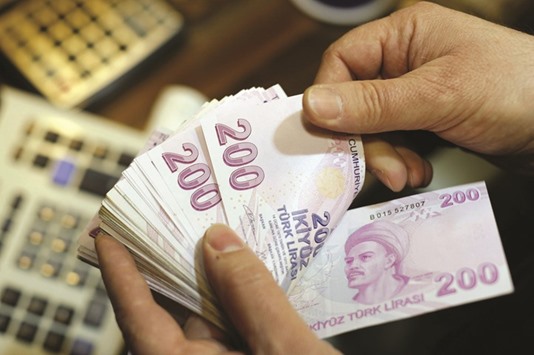The slump in crude oil prices gave Turkey its smallest trade deficit since 2009, reducing the need for foreign currency to plug the gap.
The annual shortfall shrank by more than a quarter to $63.3bn last year, Turkey’s statistics institute said in a statement on its website on Friday. Cheaper energy imports accounted for more than half of the improvement.
A weakening currency also helped Turkish manufacturers, though the benefit was offset by the loss of trade routes due to violence in Syria and because some of Turkey’s biggest trade partners are oil exporters. Overall, Turkey benefited from the commodities rout as it narrowed its current-account deficit, reducing the need to finance the shortfall with capital inflows, according to Enver Erkan, an analyst at ALB Forex in Istanbul.
“The main story explaining imports is the fall in crude oil, which benefited buyers like Turkey while hurting the economies of oil exporters,” Erkan said. “As a result, the fall in imports was much sharper than the decline in exports.”
Turkey’s trade gap fell to $6.18bn in December from $8.5bn a year ago, wider than the median estimate of $6bn in a Bloomberg survey. Imports plunged 17.5% to $18bn, compared with an 11% drop in exports to $11.8bn. Turkey’s energy bill stood at $37.8bn in 2015, down from $54.9bn a year earlier.
The decline in exports was led by falling shipments to Iraq, Iran and Russia, according to Turkstat. The European Union accounted for 44.5% of total Turkish exports compared with 43.5% in 2014.
The data show a “pretty mixed picture” for the Turkish economy, as lower oil prices and a weak lira could have resulted in an even smaller trade gap, Timothy Ash, head of emerging-market strategy at Nomura International in London, said in an e-mailed note.
“The drop in exports is a big disappointment,” Ash said. “That said, Turkish companies have done relatively well in re-orientating trade back towards recovering European markets.” The lira weakened 20% in 2015 and has lost a further 1.5% so far this year.

The lira weakened 20% in 2015 and has lost a further 1.5% so far this year
